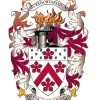How Dulwich Football Academy builds skills for life

Founded in 2016, Dulwich Football Academy’s approach is based on a ‘person before player’ principle that puts a player’s long-term growth and character development above weekly match results. As a result, it is not only one of the leading competitive clubs in Shanghai but is also a vibrant community hub that fosters inclusion, resilience, and leadership through football.
As the cooler autumn weather arrives, the football pitches at Dulwich Pudong have once again come alive in the evenings and weekends to the sound of whistles, shouts and cheers from the players, parents, and coaches who make up the Dulwich Football Academy (DFA).
Now entering its tenth season, DFA is a popular competitive football club which runs parallel to the College calendar and, despite its name, is open to all young people in Shanghai. The club has a well-deserved reputation for high-quality football coaching but for players, what’s happening on the field is only part of the story.

Football is a powerful platform for developing general life skills. We want our players to take what they learn at DFA, such as leadership, commitment, dedication, and resilience, and use it off the pitch, whether the classroom, their personal life, or even their future careers.

A Place for Everyone
DFA is unique in Shanghai for its inclusive and open-door approach, welcoming children of all ages from across the city. This not only raises standards but also allows non-Dulwich students to access excellent facilities and resources that they might not otherwise have.
Among DFA’s proudest achievements is the strength of its girls’ programme. In a traditionally male-orientated sport, DFA has made inclusivity a core value that is literally woven into its kit design. Each shirt bears a rainbow trim symbolising diversity, and on the back the team’s name takes prominence over the player’s.
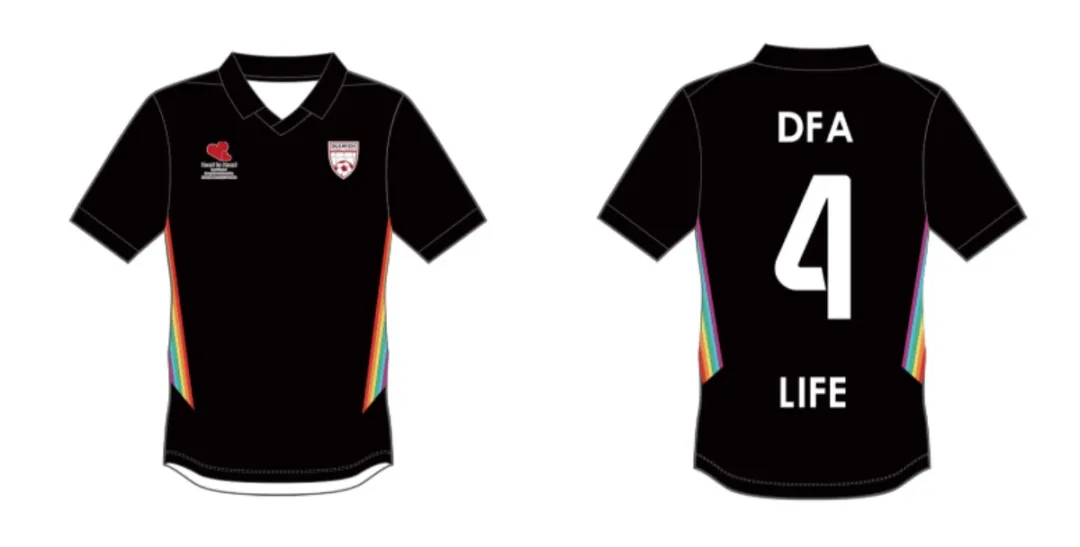
“Last year we had nearly 100 girls from under 7 to under 18,” says Coach Pete. “Many of our teams are co-ed, but this year we also launched an all-girls U10 and U11 team competing in the Y League. We’re determined to make football accessible to every child, regardless of gender.”
That commitment resonates with players like Caroline L, a Year 12 student who joined DFA six years ago after seeing friends thrive there.
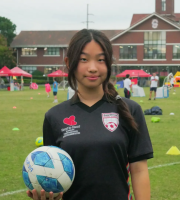
Something that really drew me to the club was how welcoming the coaches were, and I found that it was really easy to kind of make friends with everybody on the team, whether they were Dulwich students or not, and it was just a really welcoming environment that I stepped into.
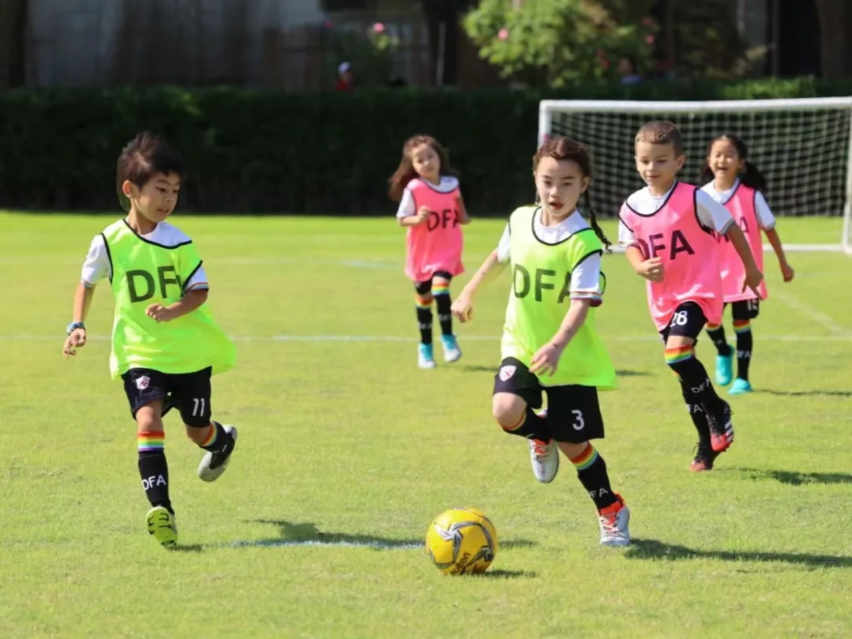
Learning Through the Game
Training at DFA goes far beyond drills and physical fitness. Every session is built around scenarios that challenge players to think critically and make better decisions under pressure. Younger age groups play in smaller formats like 3v3 to ensure more touches, more movement, and more opportunities to understand the flow of the game. Older students progress to full 11v11 matches, confidently applying what they’ve learned on a bigger stage.
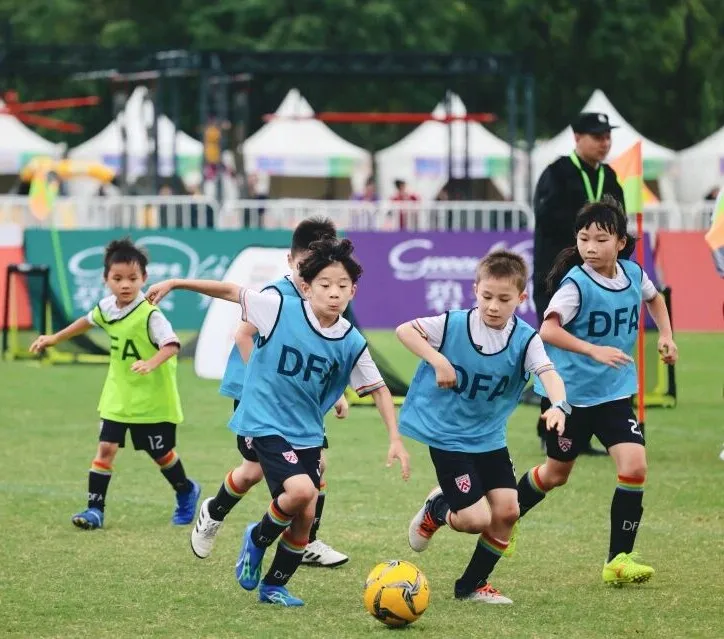
For George L, a Year 4 DFA player, teamwork has been the biggest lesson and he’s also seen his own skills improve through steady, supportive coaching over time:

Not only one person has to work hard, but everyone also must work hard. And if one person suffers, the whole team suffers. DFA is a very good team and the coaches, and the team members are all very nice. DFA is very helpful for people and teaches you football very clearly.
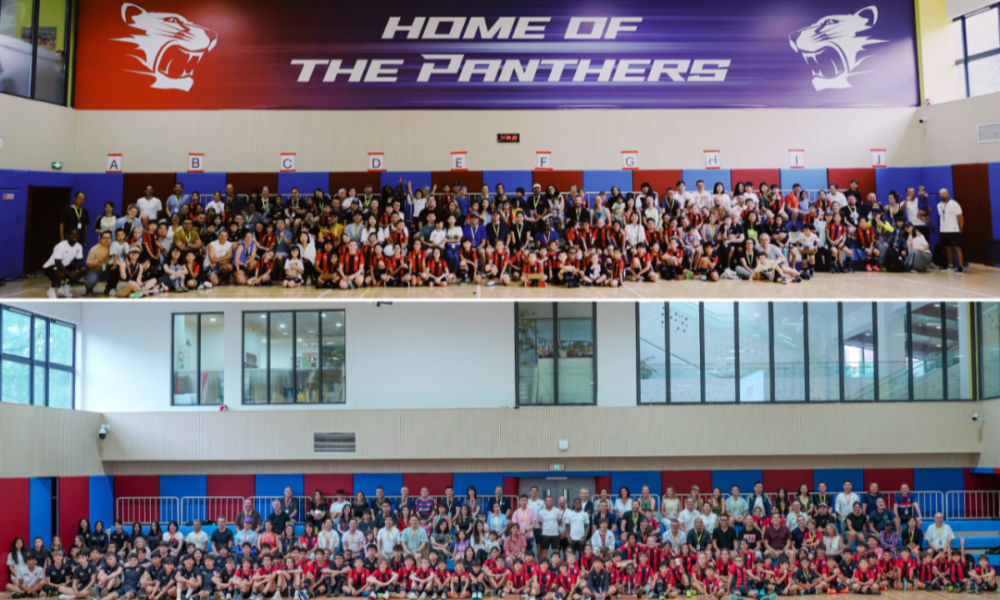
The Heart of the Community
While match days are always a high point, DFA measures success in broader terms. Some teams include younger players to challenge them at the right level, ensuring that development and not just winning remains the goal.
That ethos extends to the Academy’s community engagement. DFA players and coaches regularly volunteer at local events, while also supporting several community partnerships through activities around International Women’s Day and the annual DFA Family Day.
For senior students like Caroline, the Academy has become a training ground not only for football but for learning about leadership and communication. In addition to playing, she has coached at DFA summer camps and refereed younger matches. She credits DFA’s coaches for modelling that supportive environment. “I think that I have learned so much even just from being around the coaches and seeing how they interact with the players and how they form their personal relationship with them.”
Caroline also acknowledges that football as a girl can still present challenges. But, she says, DFA has changed the game, and she would encourage others to give it a try.

DFA is such a fostering environment that I have never felt held back by being a girl in my experience. That's something that is really hard to find in Shanghai. But I really think I am seen as who I am, my technical ability and not my gender.
A Legacy of Learning
In a transient expat environment where families often move every few years, DFA’s focus on long-term development is deliberate. The Academy’s coaches aim to give each player skills and values that travel with them wherever they go.
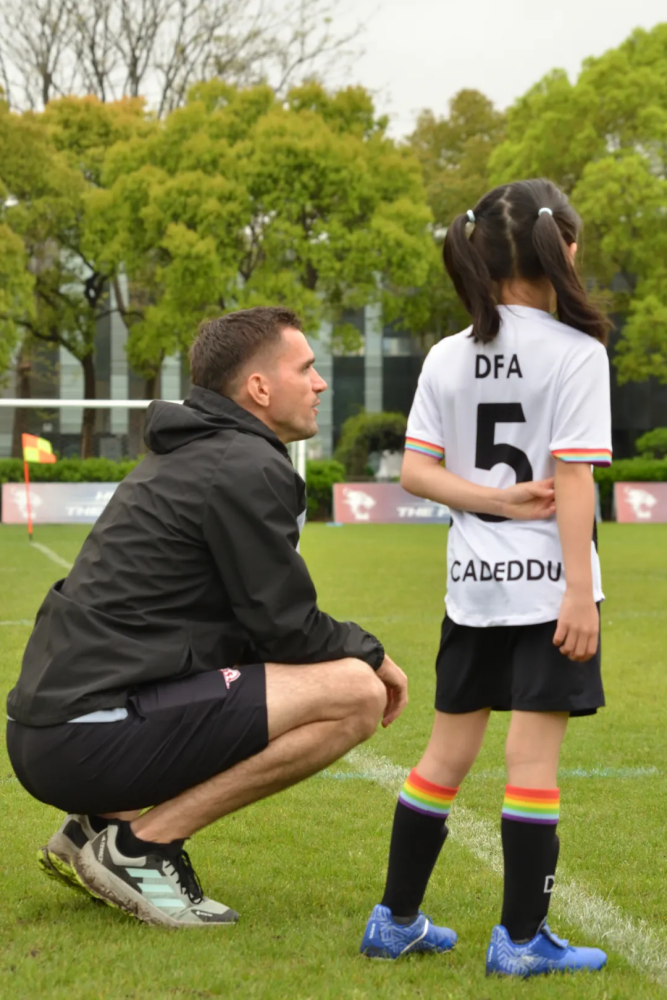

Football offers so much more than just sport, if our players leave DFA as well-rounded individuals, more confident, more empathetic, more ready to take on challenges, then we’ve succeeded.




